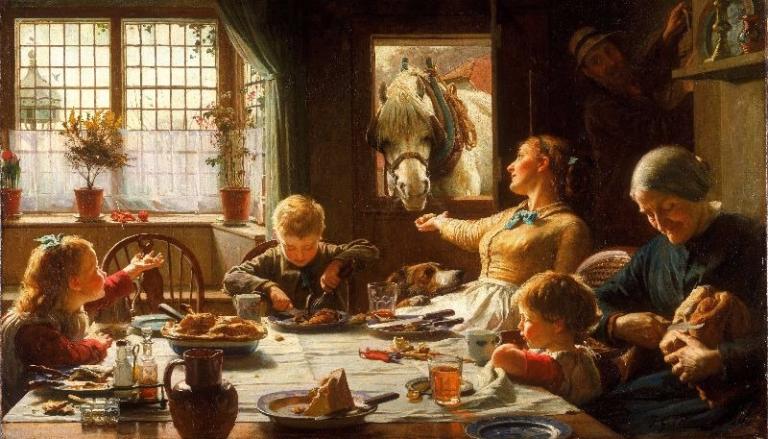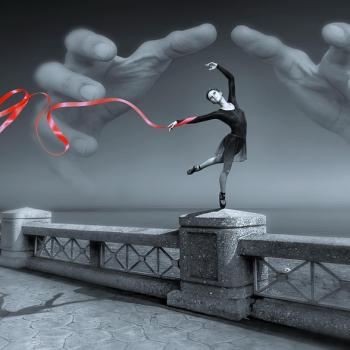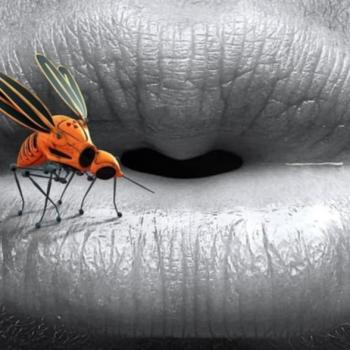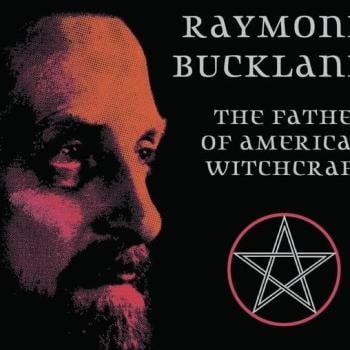Being on social media means that I come across a lot of comments and articles about Modern Paganism. Most of those things are positive and represent truths as the individual sees them. Other times though, I’m reading things that are just not true. Here are some of those things.

Pagan Authors Make a Lot of Money (Or Any Money Really)
Few things make me chuckle louder than reading comments by people who think Pagan writers make a lot of money off of their books. For most Pagan authors writing is a second-job, and is nowhere close to their primary source of income. Do you know how much the average writer makes on Pagan a book? About a dollar. Do you know how much the average Pagan book sells? A few thousand copies.
There are some full-time Pagans in the world, but most of them are doing twelve other things in addition to writing. They are blogging, selling artwork, reading tarot, running a business, constantly traveling from speaking gig to speaking gig . . . . . but most writers are working a mundane job. At a Pagan gathering once a very well known writer asked me and a few other folks who write books and go to festivals, “What’s your day job?” And everyone had one.
Back in the 1990’s it might have been possible to make a living as a full time Pagan writer, but the economics of publishing have changed. There are literally hundreds of Pagan books being printed (or distributed via Kindle) every year, with so much selection there’s no way a handful of writers can dominate the market. Stealing books is a bigger problem than ever, with some people falsely believing that buying an e-book gives them the right to give it away to as many people as they want. It’s not OK, and it’s called STEALING.
People Who Practice Hindu or Native American Traditions are Pagans
When we use the word Pagan in reference to this community we participate in, that word really only encompasses people who self-identify as Pagans, or possibly people who hang out at our festivals, blog-spots, and read our books. It’s completely unfair to label someone a Pagan who does not identify as a Pagan, and is not an active part of our community. Can one be a Hindu-Pagan? Absolutely, but that’s a determination that needs to be made by the individual, not you or I.
Since the word “Pagan” came into vogue back in the late 1960’s it’s generally been thought of as an umbrella term for a religious or spiritual grouping. I tend to still look at it that way most of the time, but there’s a really great argument that it’s a social grouping and not a spiritual one. Pagans are people who gather and participate in Pagan spaces (even solitaries still read blogs and books and visit Witch-shops), not just people we want to be Pagans.
It’s also worth noting that both Native American Traditions and Hindu Traditions are multi-faceted and not anywhere close to universal. Native American practices differ from tribe to tribe, and Hinduism has long been a broad umbrella term for perhaps hundreds of different traditions found on the Indian sub-continent. Fundamentalist Hindus have almost nothing in common with today’s Pagan Community in North and South America, and Europe. We can push people out of the Pagan umbrella on occasion, but we can’t force people to stand under it.

Paganism Is One Big Happy Family
Almost twenty-five years ago when I was starting out on this path I thought that Paganism would be one big happy family. I knew that I was not destined to be a Heathen or Thelemite, but I thought the folks involved in those traditions would see my Witchy-self as a kindred spirit. For the most part, that wish came true in my early years. I counted people from a variety of Pagan spiritualities as some of my closest and dearest friends. There were Heathens and Thelemites, but also Christo-Pagans and Druids and Shamans and just about everything in between. Any spirituality that saw its self as “Pagan” or “Pagan-friendly” I was most likely interacting with all those years ago in Lansing Michigan.
But the big happy family thing did not last. The first crack in the facade came when an initiated Witch saw me and all of my eclectic friends as something less than a Witch. As an initiate myself now, I sort of understand it, but instead of offering a helping hand or advice, we were just given contempt. That’s not how it should be done folks. That experience was so negative that I didn’t want to be a part of an initiatory path for many years.
As more people have gathered under the Pagan umbrella we’ve begun to see that some folks are uncomfortable standing under or near it. The schisms emerging in Greater Pagandom, are not isolated things, they are very real issues that are going to be a part of our community for years and decades to come. In an early draft of this article I wrote “but despite the cracks in the facade we are mostly still nice to each other,” but that’s often bullshit.
I enjoy good relationships with a lot of people from various traditions outside of my own, but I still see Traditional Witches teeing off on Wiccans (and vice versa), and Atheist Pagans dismissing magick and the deity-infused experiences many of us have had. I’m not sure that people are intentionally acting like assholes during such encounters. I think many of them are simply trying to explain their realities, and are oblivious to how their explanations will be received by anyone outside of their spiritual system. (I’m as guilty of much of this as anyone else. I’m certainly not beyond reproach.)
Most Pagans I know are among the nicest folks I’ve ever met, I don’t want anyone to think that I believe that we are all rotten apples, but there’s a pettiness to things sometimes that catches me by surprise. When asking people on Facebook if I should even write about how we aren’t all a big happy family I had someone comment “It’s real and true . . . . jealous, resentment competitive,” and I can’t help but think she was right. We are often not happy for the successes of other and it feels like we often resent people in leadership positions simply because “they are not me.”
Will we ever be a big happy family? Probably not, but we can do a better job of acting like a family. We can delight in the achievements of those around us and support the spiritual truths they find. Those truths may not be mine, but they can certainly inspire my own practice. We can also do what many families have done for hundreds of years at Thanksgiving dinner, not say anything al all when we’ve got nothing nice to say.

















